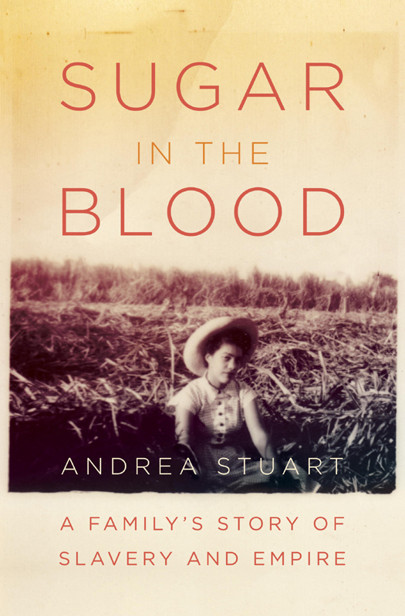

Most ebook files are in PDF format, so you can easily read them using various software such as Foxit Reader or directly on the Google Chrome browser.
Some ebook files are released by publishers in other formats such as .awz, .mobi, .epub, .fb2, etc. You may need to install specific software to read these formats on mobile/PC, such as Calibre.
Please read the tutorial at this link: https://ebookbell.com/faq
We offer FREE conversion to the popular formats you request; however, this may take some time. Therefore, right after payment, please email us, and we will try to provide the service as quickly as possible.
For some exceptional file formats or broken links (if any), please refrain from opening any disputes. Instead, email us first, and we will try to assist within a maximum of 6 hours.
EbookBell Team

4.4
82 reviewsIn the late 1630s, lured by the promise of the New World, Andrea Stuart’s earliest known maternal ancestor, George Ashby, set sail from England to settle in Barbados. He fell into the life of a sugar plantation owner by mere chance, but by the time he harvested his first crop, a revolution was fully under way: the farming of sugar cane, and the swiftly increasing demands for sugar worldwide, would not only lift George Ashby from abject poverty and shape the lives of his descendants, but it would also bind together ambitious white entrepreneurs and enslaved black workers in a strangling embrace. Stuart uses her own family story—from the seventeenth century through the present—as the pivot for this epic tale of migration, settlement, survival, slavery and the making of the Americas.
As it grew, the sugar trade enriched Europe as never before, financing the Industrial Revolution and fuelling the Enlightenment. And, as well, it became the basis of many economies in South America, played an important part in the evolution of the United States as a world power and transformed the Caribbean into an archipelago of riches. But this sweet and hugely profitable trade—“white gold,” as it was known—had profoundly less palatable consequences in its precipitation of the enslavement of Africans to work the fields on the islands and, ultimately, throughout the American continents. Interspersing the tectonic shifts of colonial history with her family’s experience, Stuart explores the interconnected themes of settlement, sugar and slavery with extraordinary subtlety and sensitivity. In examining how these forces shaped her own family—its genealogy, intimate relationships, circumstances of birth, varying hues of skin—she illuminates how her family, among millions of others like it, in turn transformed the society in which they lived, and how that interchange continues to this day. Shifting between personal and global history, Stuart gives us a deepened understanding of the connections between continents, between black and white, between men and women, between the free and the enslaved. It is a story brought to life with riveting and unparalleled immediacy, a story of fundamental importance to the making of our world.
From BooklistBiographer Stuart found George Ashby, her maternal grandfather eight times removed, at the farthest reaches of her family tree, dating back to 1620. He was among thousands who embarked on an immigrant’s journey from the Old World, with its severe social and economic strictures, to the New World, with its seemingly unbounded opportunities. Ashby landed in Barbados and began a sugar plantation that has continued to the present, a heritage that extended through miscegenation to Stuart’s black progenitors. Stuart vividly portrays the realities of race, class, and sex, as played out in the pursuit of riches afforded by the “white gold” of sugar plantations. In this family history, rich in detail, Stuart tells the story of immigration, the harsh realities of Caribbean slavery and sugar production, and the ambitions of black West Indians that have driven their own immigrant journeys to the U.S. and Europe. Stuart, acclaimed author of The Rose of Martinique (2004), offers a fascinating look at her own family, the embodiment of the global history of European immigration, the Atlantic slave trade, and the African diaspora. --Vanessa Bush
Review""Brilliantly weaving together threads of family history, political history, social history, and agricultural history into a vivid quilt covering the evolution of sugar."" ---Publishers Weekly Starred Review